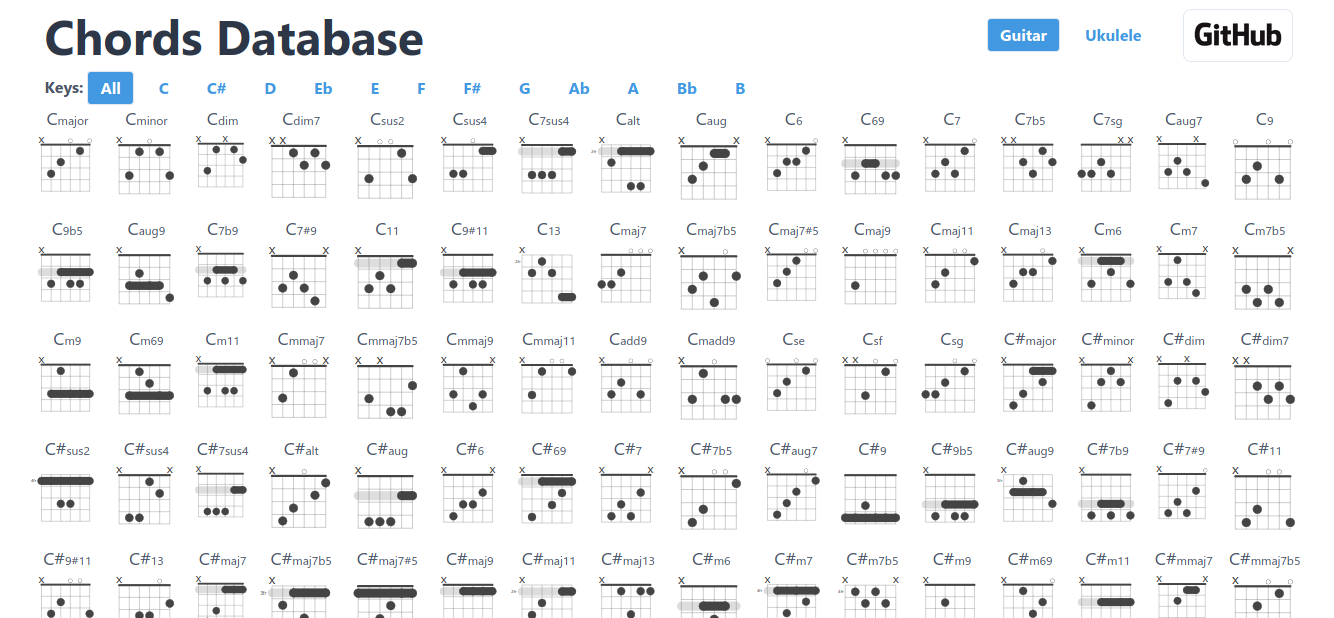@tombatossals/chords-db
v0.5.1
Published
Instrument Chords Database
Downloads
149
Readme
chords-db
This is a javascript database of string instruments chords. Open, free to use, easily improved with more chords. Contributions are welcomed, still a lot of chords (and instruments) missing. Use the pull request feature of Github to add your desired chords if you want to contribute.
Take a look at the chords database of an instrument to understand the schema used to register new chords. For example, let's take a look at the Csus2 chords of guitar. We can see this information in the C/sus2.js file:
export default {
key: 'D',
suffix: 'sus2',
positions: [{
frets: '0320xx',
fingers: '031000'
},
{
frets: '55775x',
fingers: '114310',
barres: 5,
capo: true
}]
}
Each position define a new chord variation of the Dsus2 chord. We must define the frets needed to obtain the chord in the respective strings. We can define too the fingers information for easy reading of the chord. If the chord need to barre some string, we will define if in the barre field. If you want the barre be represented with capo, you can define the "capo" property too.
How to build/contribute
This project is using yarn as package manager, so all the basic command related to the project lifecycle are bound to it. Three basic commands
yarn buildGenerates a new version of the library when new chords are added.
yarn testMake some testing of the new added chords. Very useful to detect basic mistakes.
How to use
All this information is packed in a JSON library, that you can use to render visually with a utility able to parse this information.
You can take a look of the current state of the database with this SVG rendering tool:

